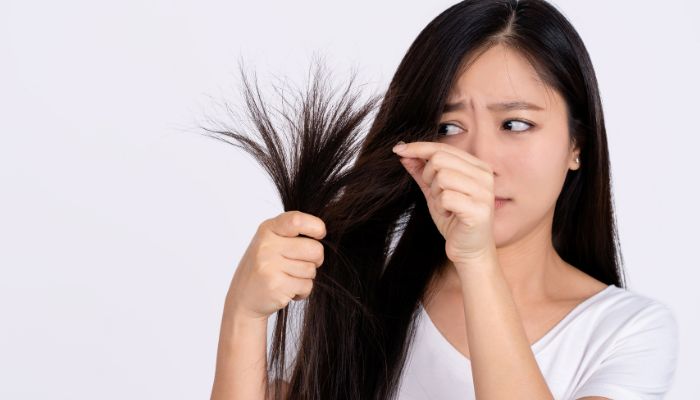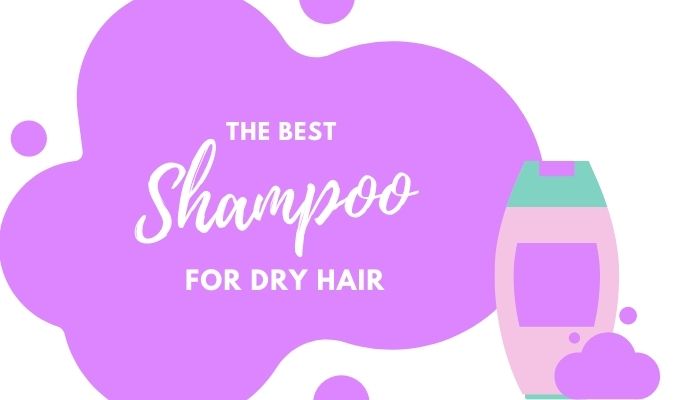A shampoo purchase can be confusing and daunting at the same time.
What does the lingo on the bottle have to do with your hair? Hydrating, strengthening, smoothing, color-safe, thickening? Our heads are scratching right along with yours.
However, if you find the right one, you’ll feel like you’ve hit the jackpot. You don’t have to play mind games if you know what to look for.
This simple guide aims to answer the question, “how do I choose a good shampoo?”
Factors to Consider When Choosing the Right Shampoo for Your Hair
Hair Type
Your hair type plays a key role in choosing the right shampoo for your hair – there is a specific shampoo formula for your hair type.
Fine Hair
View this post on Instagram
For fine hair, you should use volumizing shampoos to boost your strands and prevent your hair from weighing down.
Thick Hair
View this post on Instagram
Hydrating and moisturizing shampoos are great for thick, coarse hair. This type of shampoo can add moisture, shine, and smoothness if you have thick hair that needs extra moisture.
Wavy Hair
View this post on Instagram
Balancing shampoos are great for wavy hair – they’re not too moisturizing and won’t dry your hair out.
Straight Hair
View this post on Instagram
For straight hair, smoothing or straight hair shampoos are good options for sealing the hair cuticle as well as straightening and smoothening your hair.
Curly Hair
View this post on Instagram
If you have curly hair that tends to weigh down easily, you should go for a moisturizing shampoo containing ingredients that can reduce frizz.
Dry Hair
View this post on Instagram
Fortifying and strengthening shampoos are suitable for dry hair as they usually contain protein for improving the hair’s condition. You can also use aloe vera shampoo for reviving dry or damaged hair.
Scalp Condition
While considering your hair type when choosing a shampoo, it is equally important to consider scalp type too.
Shampoos do have varying cleansing capabilities. Therefore, it is important to identify your scalp type to arrive at the best shampoo for your hair.
If you tend to have a scalp that feels tight just after washing, then it’s a sign of a dry scalp. If you have a shinier scalp with flakes of dandruff, it could be a sign of an oily scalp. Also, there’s a combination of the scalp that is neither dry nor oily which you can tell two or three days after shampooing.
Oily Scalp
If you have an oily scalp, here’s what to look for and avoid when choosing shampoos:
- Waive hydrating, moisturizing, smoothing, or shampoo that is good for curly hair. These types of shampoos can add extra moisture to your hair which can make the scalp more oily.
- Pick a shampoo that contains moisturizing, volumizing, and balancing properties to effectively remove excess oil in your scalp.
- You can use a clarifying shampoo for a super oily scalp but don’t overdo it as it can cause dry scalp.
- Use a double shampoo – one for washing the scalp and a different formula to wash below the roots.
- Work the shampoo into your scalp to break up the excess oil and rinse thoroughly after.
- Do not work your conditioner into your scalp. Focus on the mid-shaft and ends instead. Rinse well after.
Dry Scalp
In addition, you should try the following for dry scalp:
- Do not use volumizing shampoos as they can strip the moisture in your scalp.
- Use moisturizing shampoo for a scalp that is slightly dry without itching or flaking. This will encourage moisture retention.
- Choose sulfate-free shampoos. Sulfates are toxic and very drying for your scalp and hair.
Shampoo Ingredients to Avoid
There are shampoo ingredients that are toxic to your hair and could be detrimental to your overall health as well. That said, it is important to heed the label of your hair products when purchasing.
You should stay away from shampoos that contain the following ingredients:
- Sulfates
- Parabens
- Triclosan
- Formaldehyde
- Polyethelene Glycols
- Dimethicone
- Retinyl Palmitate
- Synthetic Fragrances and Colors
Note: Harsh chemicals strip off your hair’s natural oils, which can cause hair damage.
Important Hair Care Tips For You
- Shampoo oily hair more often.
- Shampoo dry and color-treated hair less often.
- Use dandruff shampoo for scalp issues.
- Protect your hair from chemicals like chlorine.
- Focus your conditioner on the lengths of your hair.
Summary
Choosing a good shampoo for your hair is vital for boosting and maintaining healthy hair and scalp.
The biggest secret to choosing a good shampoo is defining your hair and scalp type and also learning to choose the right hair cleansing agent that are safe for your tresses.
Read this article on the best shampoo for dry hair for recommendations.



